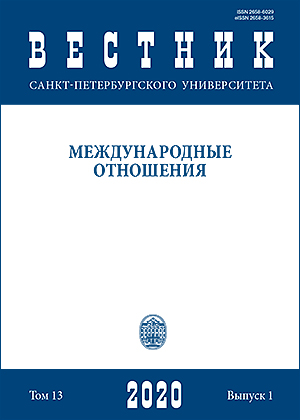European Union in the age of post-truth: Developing societal resilience before European Parliament elections 2019
DOI:
https://doi.org/10.21638/spbu06.2020.105Аннотация
The emergence of phenomena such as fake news, alternative facts, and new wave populism have resulted in a new pressing problem for most modern democracies in the Western world. They have stressed a conceptual shift within the social tendencies and processes, which has resulted in the creation of a post-truth world. The main characteristics of such phenomena can be described as the transition from an evidence-based, normative and factual discourse to an emotional, post-factual and populistic one. The reason for this can be found in the psychological and technical dimensions of contemporary society. A synthesis of postmodernist logic of falling metanarratives, with the spread of social media, altered the nature of the truth and the lie. In this context, the changes in European politics at the supranational level became particularly important. The threat of populism, which uses the post-truth discourse in its favour, has forced the EU to elaborate on a set of mechanisms to overcome the negative effects of fake news and disinformation. Meanwhile, the main idea of how to tackle the phenomena of the post-truth world is based on the principle of societal resilience. An adaptive environment towards stressful influence on the Union is nowadays the global aim of the EU and it became particularly important right before the 2019 European parliament elections. This research will provide an analysis of the preliminary and preparatory measures that had been undertaken by the EU and a more general overview of the EU’s capacity to resist post-truth.
Ключевые слова:
post-truth, resilience, disinformation, fake news, European Union, European Parliament election
Скачивания
Библиографические ссылки
Загрузки
Опубликован
Как цитировать
Выпуск
Раздел
Лицензия
Статьи журнала «Вестник Санкт-Петербургского университета. Международные отношения» находятся в открытом доступе и распространяются в соответствии с условиями Лицензионного Договора с Санкт-Петербургским государственным университетом, который бесплатно предоставляет авторам неограниченное распространение и самостоятельное архивирование.




